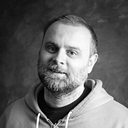Request for Startups at Conception X

At Conception X, we are actively recruiting for our 5th cohort, and we are particularly interested in hearing from deeptech startups and researchers who are working on technology within — and at the intersection of — any of the categories listed below.
This list focuses on what we’d like to see more of in 2022, but it’s by no means exhaustive. Robotics, quantum, artificial intelligence and healthcare were heavily present in previous years and are always more than welcome.
If you are working on any of these, please do apply or reach out to anyone at Conception X. Our program does not take equity and runs alongside your PhD, and the main requirement is that it is open to current PhD students only.
-
Biotech as software
Biology and software are converging, and have been doing so for a long time. There is an entire tech stack that is still in its infancy that will abstract wet labs and allow researchers to operate from a computer. We are keen to consider anything that either helps with this transition or exploits the tools that are already available today.
-
Anti-aging, life extension
Our understanding of what life is continues to receive a lot of attention and investment. Yet, instead of focusing on massive moonshots, is there progress to be made in some aspect of anti-aging that could benefit a subset of the population, perhaps affected by a rare condition, that could remove barriers for them?
-
Haptics and novel interfaces
Mixed reality is finally on the horizon after decades of false starts. We are keen to support researchers who are working on senses other than sight for XR. Haptics has countless applications, and demand from businesses and consumers alike is strong, with a lot of research available that has not been turned into products yet.
-
Climate tech
This is a key innovation category for us in 2022 and beyond. Surviving the anthropocene and thriving in it is going to be the most important area of investment in this decade. While a lot of funding will go towards transferring information — in the form of software — so that society can act and allocate resources correctly, this is nowhere enough to decarbonise our economy. New hardware solutions are needed. We are interested in anything that can improve energy production or consumption, and we don’t just mean electricity, but energy in all its forms.
-
CPUs/GPUs/DPUs/TPUs/xPUs
We might have hit peak computing power on the edge (or at least peak edge power consumption), but data centre growth is going to be mind-boggling over the next decade, and specialised computing architectures are needed to supply ever increasing computing power demands and with deeper software integration. We are interested in both complete microprocessors architectures as well as novel materials and manufacturing techniques for existing products. Self-organising computing environments using agents are also of particular interest.
-
Resilience against disasters
This is a massive category, and Carrington event, AMR/MDR, a Kessler event (to some extent we are lucky that not everyone is overly familiar with these terms) and more. There is a range of events that might happen for which there is no preparedness, very little infrastructure, and not enough people working on it.
This is not just about finding solutions for things like natural disasters or bioterrorism, but also injecting antifragility in our economy; even something relatively straightforward like one company having 2.5 billion people as customers is a significant systemic risk, as during periods of conflict everything that can be weaponized will be. Fragmenting and compartmentalising are also a way of delivering resilience.
-
New forms of digital government and governance
This is a new item on the list, and something we have not seen at Conception X in this form. We get candidates overwhelmingly from STEM backgrounds, but we are wondering if there are researchers using software to build new forms of governance that are current PhD researchers in other disciplines. This doesn’t automatically imply cryptocurrencies or DAOs (in fact very much not quite the latter if they end up increasing CO2 at the current scale that they are being used), even if one cannot fail to see those as some early attempts at creating new, open source, digitally native forms of consensus building and settlement.
